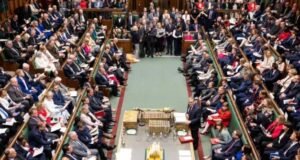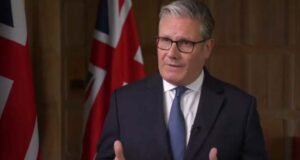 David Cameron has signalled that the UK will stage its referendum on membership of the European Union in 2016 and made clear that continued membership was vital not just to economic security but to the fight against international terrorism.
David Cameron has signalled that the UK will stage its referendum on membership of the European Union in 2016 and made clear that continued membership was vital not just to economic security but to the fight against international terrorism.
His remarks, at the close of a two-day EU summit in Brussels, suggest that the prime minister knows he is not going to achieve all his negotiating demands and has decided to press ahead with the vote as soon as a final deal is struck at another summit in February.
The referendum is most likely to be staged in July as there are fears in Number 10 that the migration crisis may have worsened by autumn next year.
Cameron knows he has a party management problem now to forestall any high-profile cabinet resignations by those convinced the package does not change the fundamental contours of the UK relationship with Europe.
He has promised to hold the public vote before the end of 2017, but a deal at the summit in February would clear the way for the referendum within six months. Cameron is required to spend six weeks passing details of the legislation through parliament before four months are set aside for the campaign.
Speaking at a closing press conference designed to generate a sense of momentum, the prime minister said: “We’ve made good progress, we are a step closer to agreement on the significant and far-reaching reforms I have proposed.
“It is going to be tough and there is a lot of hard work to do. But I believe 2016 will be the year we achieve something really vital, fundamentally changing the UK’s relationship with the EU and finally addressing the concerns of the British people about our membership.
“Then it will be for the British people to decide whether we remain or leave. It is a choice we will all need to think hard about.
“I believe if we can get these reforms right – and I believe that we can – I firmly believe that for our economic security and increasingly for our national security, the best future for Britain is in a reformed European Union.”
In one of the clearest statements yet of his support for continued membership, Cameron said that, in the wake of the Paris terrorist attacks, “I firmly believe that for our economic and increasingly our national security, the best future for Britain is in a reformed EU”.
“This is is a massive decision for our country. If you think about the terrorist and security threats we face, and the situation brought about by what Russia has done in Ukraine, the terrorist threat generated by the instability in the Middle East, I think we are better off standing off together with our allies and partners in a reformed Europe and that is why, if anything, this negotiation has got more important.”
Pressed on whether he had enough time to secure a deal by February, Cameron said: “I have been working on this with a clear mandate for the British people since May and what matters is that these changes are legally binding and irreversible.
“I want a deal in February. But I have set myself the deadline of the end of 2017, because I wanted to give myself time to get this right; it’s about the substance rather than the timing.”
He refused to go into further detail about the compromise on the issue of banning EU migrants from receiving in-work benefits until they have been in the UK for four years, saying simply that the issue remained on the table.
But it is clear he is looking at an alternative, such as an emergency brake that could be applied to such benefits if public services were under severe strain. The trigger for such a brake remains to be decided and will be hard to agree on.
Cameron also tried to broaden the scope of the welfare package to highlight three other elements apart from in-work benefits.
He said he was well on the way to ensuring, with the acceptance of the European commission, that immigrants would not have access to unemployment benefit for the first six months in the UK; that anyone unable to secure a job after six months would have to leave the UK; and that EU migrants in the UK would be banned from sending child benefit home.
The prime minister knows that in terms of future party management, and threatened cabinet resignations, Iain Duncan Smith, the work and pensions secretary, is one of the ministers most likely to look at the welfare reforms with a Eurosceptic view.
Cameron stressed that the welfare issue was not the only item on which difficult negotiating hurdles lay ahead. One of the most important issues to be resolved was the relationship between those EU countries inside the eurozone and those outside.
He said it was a statement of fact that the EU had different currencies and those inside the eurozone wanted to know that Britain would not try to block them from pressing ahead with the integration they needed.
“My whole point is I do not want to stand in the way to make it work well,” he said. “But likewise, it is important we have a set of principles that ensure Britain and other currencies outside the euro cannot be put at a disadvantage.”
 Weekly Bangla Mirror | Bangla Mirror, Bangladeshi news in UK, bangla mirror news
Weekly Bangla Mirror | Bangla Mirror, Bangladeshi news in UK, bangla mirror news







